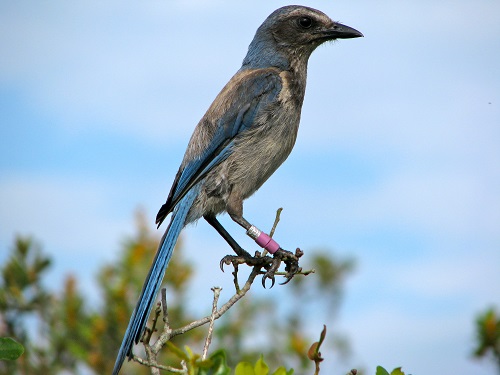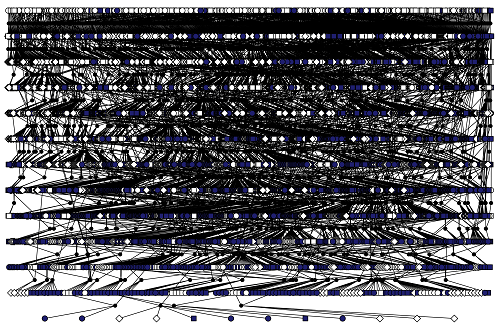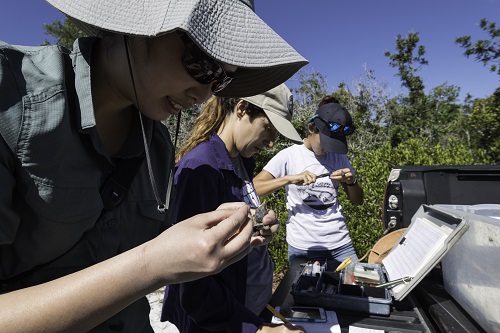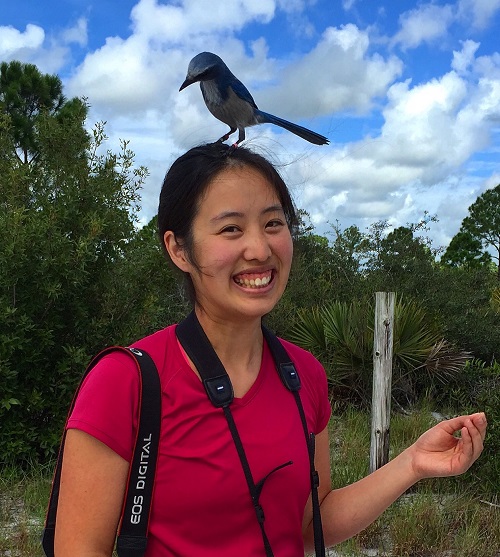About the department:
I am an Assistant Professor in the Department of Biology at the University of Rochester, specifically in the Ecology, Evolution, Genetics, and Genomics group. Although our department is relatively small, we have an unusually high concentration of ecological and evolutionary genetics labs. We have a newish computational biology major, which means there are lots of awesome computational undergrads here!
About the research:
Research in my lab focuses on the evolution of natural populations on short timescales. How do population demography, selection, and gene flow interact to shape evolution and genomic variation? What are the genomic consequences of population decline? To answer these questions, we integrate population genomics and quantitative genetics with extensive pedigree and phenotypic data from long-term demographic studies of vertebrates. By tracing the inheritance of genetic material down the pedigree, we can directly characterize the evolutionary processes shaping patterns of genomic variation through space and time, providing a deeper insight into the process of contemporary evolution at the genomic level.
What has been the biggest challenge as a new PI so far?
Definitely time management. I feel like I'm juggling multiple balls and dropping nearly all of them, which I'm told is normal for a new PI but still makes me uncomfortable. I've started a few new collaborations that I'm super excited about, and I’m figuring out how to switch my brain among multiple different projects quickly. I've also learned that I'm not super efficient at getting big tasks done in short time periods between meetings, so now I'm trying to be better about blocking out big chunks of time to clear my mind and really work through a problem or write.
What has been the biggest surprise so far about being a new PI?
How quickly I've become unnecessary to my students (kidding! I hope...). At our first ever lab meeting, as we were outlining the schedule for the semester, I mentioned that I would be out of town next week and asked if they wanted to skip lab meeting. Without any hesitation, my students decided to go ahead and run an R workshop without me. I was a bit taken aback at first, then flooded with happiness and pride at their independence.
How do you/will you approach mentoring new lab members?
I believe that every student needs different things from their advisor, and these needs can change over time. I'm trying my best to adapt my mentoring style for each student, which means that I rely on open and honest communication. When someone joins my lab, we talk about our expectations for each other and the best ways to communicate. I'm currently working on setting up an outline for individual development plans, and I plan on revisiting goals and expectations with each lab member regularly.
Are you recruiting? If so, how do you/ will you choose new lab members?
Yes! I'm looking for creative, motivated team players with some computational skills and a passion for learning and exploring.
When was your first Evolution Meeting, and how did it affect your career?
My first Evolution Meeting was the 2006 meeting in Stonybrook. I was a rising senior, and my undergrad advisor Scott Edwards had encouraged me to go to the conference to meet people and help me decide where to go to grad school. I remember being overwhelmed by the sheer number of evolutionary biologists when I first walked into the opening ceremony. I had a great conversation with a grad student that made me decide to apply to Cornell for grad school. Another memorable moment from that conference: my first (and rather traumatic) introduction to ticks during a pre-meeting field trip to the Long Island pine barrens.
Besides research, how do you promote science?
I am dedicated to promoting social equality and building more inclusive communities. Most of my work in this area involves running women in science groups as well as diversity and inclusion trainings. I also really enjoy teaching interactive lessons for K-12 students, and I'm looking forward to participating in our Upward Bound program this summer.
What one piece of advice would you give to a starting graduate student?
Form relationships with multiple mentors and make sure you have a strong support network. We all need mentorship on many different things (science, communication skills, professional development, etc.), and you may not necessarily be able to find a single person who can provide all the various types of support you need. Besides, it is often helpful to get advice from multiple people with different perspectives and experiences. Having a good network of friends/family is also really important because grad school can be hard, and a strong support system will help you deal with the inevitable rejections/failures we all experience (related note: be sure to celebrate all accomplishments, however small!). A piece of advice I got from a mentor in grad school that really struck me at the time is to not put your life on hold. Your life is happening now, so live it to the fullest. Try to establish good work-life balance early. Grad school is a long time commitment, and your workload is only going to increase. Working long hours does not always translate to working efficiently and high productivity. Also, having non-work activities that give you joy will help keep you happy when everything seems to be failing in lab.
What one piece of advice would you give to a postdoc?
Imposter syndrome never goes away, not even after you get a Ph.D. (or a faculty job, for that matter). Sorry. Also, I found it helpful to put together a job application early. Thinking through what qualifications you need to get your dream job (e.g., what is the cover letter you wish you could write?) helps pinpoint areas to focus on and skills to acquire during your postdoc.
What is something most people don’t know about you?
I have a left cervical rib, which I only discovered after getting an injury from canoeing (and/or portaging - probably both) too much. My mammalogist friends got really excited because mammals aren't supposed to have cervical ribs.
What do you enjoy doing in your free time?
Most of my hobbies are outdoor activities such as hiking, backpacking, running, birding, etc. I garden indoors. I'm also an avid cook and baker, though I'm only allowed to make desserts for other people.
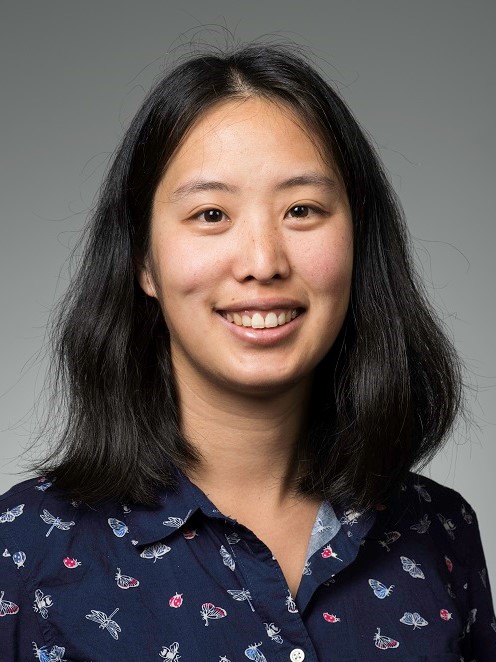 Nancy Chen
Nancy Chen